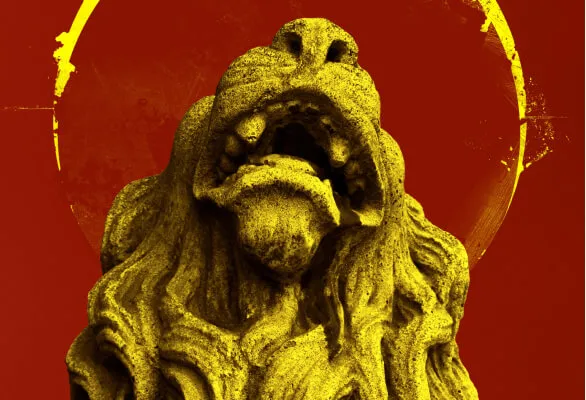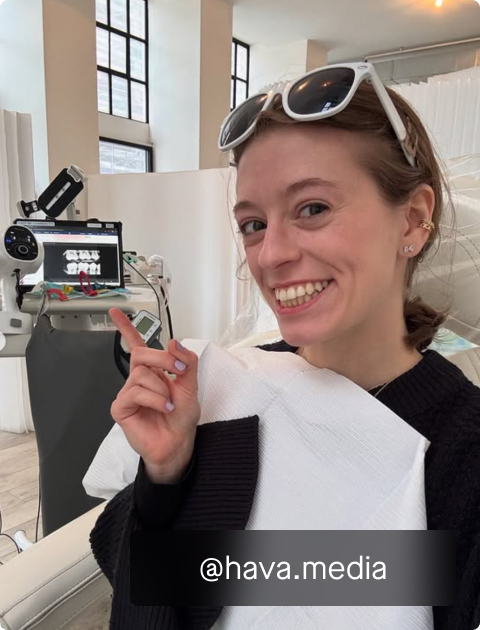Sore throat after wisdom teeth removal and other concerns

Getting your wisdom teeth out is a big deal. You just lost four giant teeth and you and your mouth are working hard to recover. Resting and the right care is exactly what will get you through the healing phase.
During the healing phase you might notice a few things that don't seem, well, normal. These might include discomfort from referred pain that radiates to other parts of your mouth or even head and neck, or some funny smells that come from the extraction site. Let's dive into what this might mean, and what the most important thing is for you to watch out for: dry socket.
Sore throat after wisdom teeth?
You did it. You got through the extraction of one or multiple wisdom teeth with their gnarly roots. Even though it's an in-and-out procedure, it's a big deal and we hope you're taking time to let your body heal from the surgery. As you (try to) relax at home, the feeling will start to come back to your mouth and you might realize … I feel some discomfort but it's nowhere near where my wisdom teeth were!
You're experiencing referred pain. That's when you feel pain or discomfort in one area, but the source of that pain is from somewhere different. Common referred pain is feeling pain on the tooth opposite the removed tooth, in the jaw, in the ear, and even in the neck.
"Referred pain can seem strange if you experience it," says Wally dentist, Kevin Walker, DDS. "The reason for referred pain might be due to neural connections, receptors being overwhelmed, or even uncovering latent discomfort that was 'overshadowed' by pain caused by the wisdom teeth."
If you feel any referred "pain" or discomfort, it should start to subside within a few days after you get your teeth extracted.
Do wisdom teeth cause bad breath after they're gone?
You might have noticed that your wisdom teeth were the source of bad breath. Wisdom teeth can trap bacteria deep in the gum pockets around them, increasing your risk of infection. And yes infections, even mild ones, can be the cause of odor.
The good news is once your wisdom teeth are removed, the bacteria that is causing bad breath will start to decrease. Over time, your oral environment will re-stabilize. If you pair your recovery with an excellent at-home hygiene routine designed to neutralize your saliva and minimize bad bacteria, you'll say goodbye for good to bad breath.
Immediately after your extraction you might experience a different kind of bad breath. "Extractions can cause funny odors in the mouth, but it should only be temporary," shares Wally hygienist, Sarah Clark, RDH. "Smells from normal healing can be resolved by rinsing with salt water and cleansing your oral environment."
If you notice any strange smells coming from your mouth in the days after getting your wisdom teeth removed, our team recommends keeping an eye (or a nose) on it. If that post-extraction bad breath persists or even gets worse it might be a sign of dry socket.
Healing socket after tooth extraction - how to avoid dry socket
When you get your wisdom teeth removed, or really any teeth removed, the number one thing to avoid is dry socket. Dry socket happens when your blood clot either doesn't develop or gets dislodged before your socket heals. Your underlying bone and nerve endings are exposed without a cot and you'll experience high levels of pain. Additionally, the healing process slows down because the clot helps your bone regrow and your gums heal over the empty socket.
Dry socket is the most common complication post-extraction with 2-5% of wisdom tooth extractions getting it. The good news is there are steps you can take before and after the surgery to greatly reduce your chances of dry socket.
Here's a quick list of what to do prior to your appointment:
- Don't smoke in the days leading up to your extraction.
- Discuss medications with your dentist.
- Hydrate, hydrate, hydrate.
And after your teeth are removed:
- Keep your mouth clean. Follow care instructions and continue your hygiene routine.
- Decrease physical activity. Take time off from work, and don't worry about keeping up your exercise routine for a few days.
- Manage pain. Follow the medication your doctor prescribed.
- Stay hydrated. Sick of us saying that, yet?
- Don't suck on anything for 72 hours. The first three days are the most vulnerable time for your new socket.
- Avoid tobacco for 48 hours. It's not great for your gum health.
- Eat soft foods. And for the first three days avoid foods with small seeds or crumbs that can get lodged in the healing wound.
While you are healing keep an eye out for the symptoms of dry socket. If you end up getting dry socket and are able to address it early, you can recover faster and minimize the discomfort.
Looking for more details on how to keep your mouth healthy post-extraction? Check out our care instructions for post-wisdom teeth extraction.









